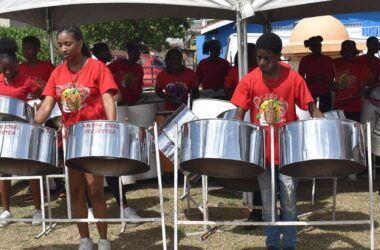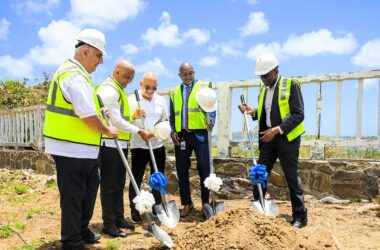Representatives of five Caribbean islands converged in Saint Lucia last week for a Food- Borne Disease Workshop. The workshop included a hands -on component, where participants received laboratory training on identifying disease-causing pathogens, and guidance on dealing with signs of possible food -borne illnesses.
The Caribbean Public Health Agency –CARPHA, is placing a particular focus on food and water borne disease testing, through training and capacity building.
CARPHA, in June, engaged St. Lucia, Antigua, Barbados, Guyana and Surinam, at a three-day training session held in St. Lucia.
CARPHA’s Director of Surveillance Disease Prevention and Control, Dr. Lisa Indar says the sessions were laboratory-based, focusing on various topics.
“So, we have two sets of topics, the importance of food borne diseases, surveillance prevention and control like I just presented on integration for surveillance. And then what are the types of pathogens of food borne pathogens that cause illnesses. And then the other set of topics that ranges, how to collect a sample and how do you go through in the lab to test the different samples for the different food borne pathogens,” Dr. Indar said.
Kareem Charlemagne is the Environmental Health Laboratory Manager for CARPHA in St. Lucia. Charlemagne says the workshop placed a particular focus on the process of sample collection, identifying the disease-causing pathogens and guiding affected individuals.
Charlemagne says it is expected that the participants will return to their individual workplace and share what they have learnt.
“We’re hoping that they leave here with the skills needed to not just to conduct the analysis that’s required for the identification of these pathogens but also to help them be able to provide guidance to their colleagues as well as to the other stakeholders who take part in outbreak investigations or food borne disease investigations. So, helping guide the environmental health officers with regards to what to look for in the samples how to collect the samples,” Charlemagne said.
The Regional Food Borne Disease Sampling Workshop was sponsored by the European Union and organized through Cariforum. The lead implementing agency is the Pan American Health Organization in collaboration with CARPHA, the Caribbean Institute for Meteorology and hydrology, Caribbean Community Climate Change Centre in Belize and the University of the West Indies.
Head of CARHPA’s Caribbean Field Epidemiology and Laboratory Training
Program, Dr. Laura-Lee Boodram says the project also has a climate resilience component.
Said Boodram, “The project is entitled ‘strengthening climate resilient health systems within the Caribbean’. So, for this particular activity that we’re here for this week and this workshop, this falls under building laboratory surveillance and diagnostic pasty for detection of food and water borne pathogens.”
According to the CARPHA representatives, food- borne diseases are very common and highly under reported. Regular hand washing and consuming properly cooked foods are two proven ways of avoiding contamination and disease transmission.













